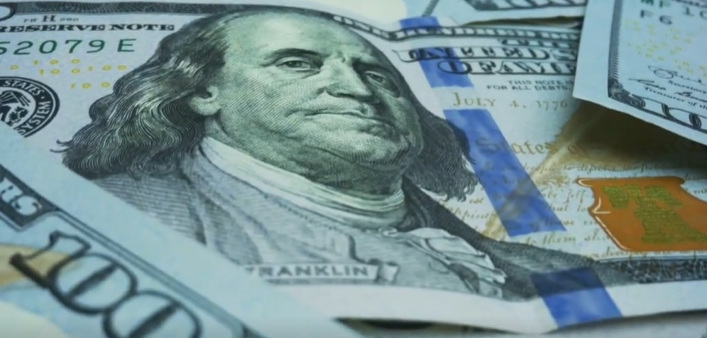NORTH LAS VEGAS (KTNV) — The phone rings and it's your bank, or is it? Scam artists are getting better and better at stealing your money.
If you think it won't happen to you, think again. 13 Action News anchor Tricia Kean spoke with a local woman who fell victim to some high-tech thieves.
I WAS IRATE
"I was just irate, you know," says Allison Teso of North Las Vegas.
She can't believe it. She's lost every penny in her bank account.
ALMOST $600
"Like, almost $600," says Teso.
It all disappeared after getting a call last month. The person identified themselves as a Chase Bank representative.
"I Googled the phone number when I was on the phone and it said Chase customer service," says Teso.
CALLER HAD INFORMATION
The caller even had her information.
"He had my mailing address. He had my date of birth. He knew the last four of my bank account," says Teso.
The caller claimed someone was trying to transfer money out of Allison's account. To stop the fraudulent transaction, she was told to enter an authorization number into her banking app.
But that move actually allowed the scammer to clean out her account.
WIPED OUT
"He hung up immediately after he got what he wanted and I saw my bank account was wiped out," says Teso.
She was speaking with the actual scammer the whole time. Unfortunately, Teso isn't alone.
"There are a lot of victims out there," says Phyllis Gurgevich with the Nevada Bankers Association.
She says Americans lost more than $3 billion to fraudsters last year. That's double the amount lost in 2019.
IMPOSTER SCAM
Just like Teso, many victims are the target of people posing as bank representatives, in what's known as an imposter scam.
"We are seeing an elevated level of that... Fraudsters are doing their research. When they call you they're not just fishing blindly for information. They may actually have some of that data already," says Gurgevich.
SCARE TACTICS
In order to get the rest of your crucial information, many of these scammers are using scare tactics.
"They're going to try to scare a customer or victim into thinking they need to act right now," says Gurgevich.
Gurgevich says if someone calls you claiming to be from your bank, beware!
RED FLAGS
"You're being put in the position of having to identify yourself or you are being pressured into acting immediately, those are really your strongest red flags," says Gurgevich.
When in doubt, Gurgevich says end the call.
"Hang up and call the bank at a number that's on your card or on your statement," says Gurgevich.
NO REFUND
Allison called her bank. Chase investigated but says it's not refunding her money. They sent her a letter stating "...the transaction was processed according to the information you provided..."
Allison says from now on, she'll use a prepaid card and plans to close her account.
"I don't trust the banking system now, honestly. I'd rather just have control of my own money because you just never know," says Teso.
REPORT IT
Gurgevich says anyone who falls victim to a banking scam should report it to the Nevada Attorney General's office and the FTC. She also stresses the importance of giving yourself some grace.
"When you lose money it's devastating. When you actually give money away it's humiliating. So be kind to yourself and move forward and take the action to protect your account," says Gurgevich.
13 Action News reached out to Chase. But the bank declined to talk about Allison's case due to privacy policies.
CHASE FRAUD PREVENTION
Chase did however provide additional information about fraud prevention that states:
We provide customer education about fraud and scams, phishing attempts by text and how to avoid them, and have additional tips.
IF YOU GET A CALL
For example: What do I do if I get a phone call about my account?
Never give out personal or financial information such as your checking account, credit card and Social Security numbers over the phone unless you made the call or you know the person or organization you're dealing with.
We won't ask you for your PIN or password by calling you or by sending you an email. We may ask for this information only when you call us to discuss your account.
BEWARE OF THREATS
Be careful when you get a phone call from someone who:
Threatens to close or suspend your account if you don't tell them your personal information.
Tells you your account has been attacked and then asks you to tell them your account or personal information.
Requires you to give any personal information, such as your user name, password or account number.
Asks you to confirm, verify or update your account, credit card or billing information.
CONTACT YOUR BANK
Please contact us right away if you believe you've given out any personal information over the phone. To report a suspicious phone call or potentially fraudulent activity, please follow the instructions on this page.
PHISHING
Information about phishing attempts through email, phone or text, including examples and how to report it can also be found here.
Remember: We won't ask for confidential information such as your user name, password, personal identification number (PIN) or other account information in a text message or email.
You can find that information on our website here.
ZELLE
On our website, we also provide additional information about using Zelle.
For example: Make sure you send money to people you know and trust in order to help avoid scams and protect your account.
We don't protect or cover purchases if you use Zelle to pay for goods or services. Chase will never contact a customer asking them to make a Zelle payment to anyone.







